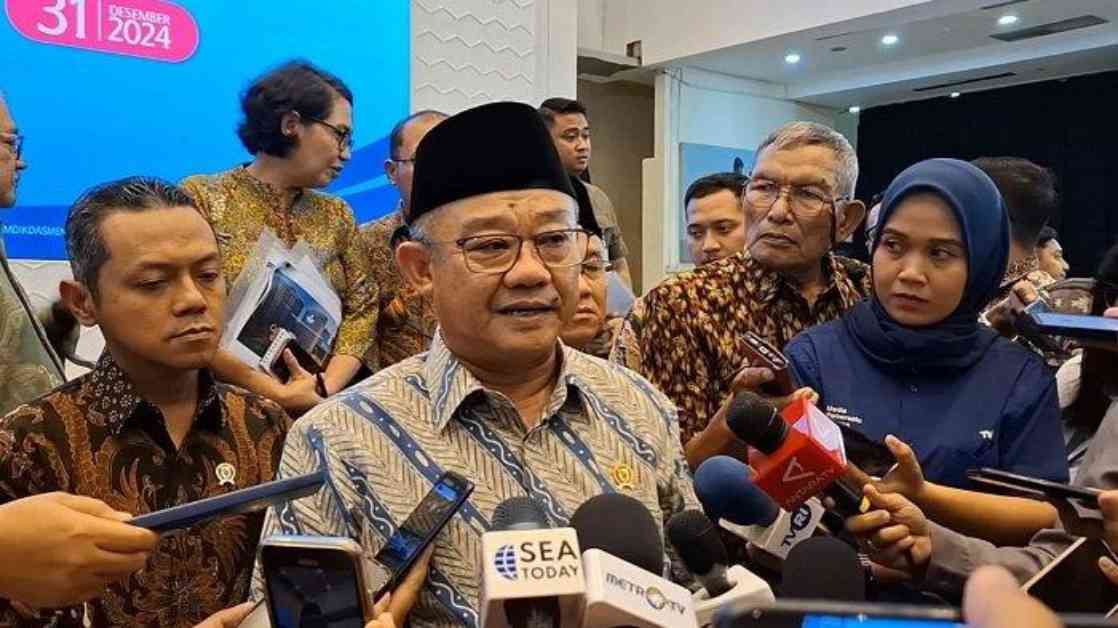Education Minister Abdul Muti recently announced budget cuts that have impacted the educational sector, resulting in significant savings of Rp 7.27 trillion. This revelation came after a letter from the Ministry of Finance on January 24, 2025, outlined cuts of Rp 8.03 trillion, leading to a total reallocation from Rp 33.5 trillion to Rp 25.5 trillion.
During a meeting with the House of Representatives’ Commission X in Central Jakarta, Abdul Muti shared insights on these budget adjustments. He highlighted the importance of balancing efficiency with the rights of civil servants, ensuring that essential benefits like the 13th salary and civil service allowances remain intact. This move underscores the government’s commitment to maintaining essential services while optimizing financial resources.
### Ministerial Collaboration and Fiscal Responsibility
Prior to the meeting with the House of Representatives, Abdul Muti engaged in discussions with State Secretary Prasetyo Hadi to align on the budget cuts’ implications. The State Secretary emphasized the need for efficiency without compromising the welfare of civil servants, emphasizing that salary and benefit entitlements must be preserved.
In a detailed presentation, the State Secretary outlined specific guidelines for budget adjustments, highlighting the importance of maintaining a balance between operational needs and financial prudence. While certain categories like social assistance were exempt from cuts, reductions were primarily targeted at procurement and capital expenses to ensure ministries’ continued functionality.
### Presidential Directive and Financial Realignment
President Prabowo Subianto’s issuance of Presidential Instruction 1/2025 marked a significant shift in fiscal policy, calling for a reduction of Rp 306.69 trillion in government spending for the 2025 fiscal year. This directive aimed to streamline expenditures across all ministries, with a particular focus on enhancing public services and addressing critical societal needs.
Finance Minister Sri Mulyani Indrawati echoed the President’s vision, emphasizing the importance of reallocating resources to initiatives with direct and tangible benefits for the populace. Key areas of focus included nutritional assistance programs, food and energy self-sufficiency, and healthcare infrastructure improvements. By optimizing budget allocations, the government aimed to enhance the overall quality of life for Indonesian citizens while fostering sustainable economic growth.
In conclusion, the government’s strategic budget adjustments reflect a proactive approach to financial management, ensuring that resources are allocated efficiently to maximize their impact on society. Through collaborative efforts between ministries and adherence to fiscal responsibility principles, Indonesia aims to navigate economic challenges effectively while safeguarding essential services for its citizens.














